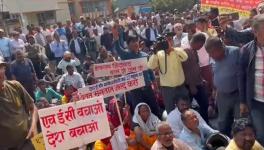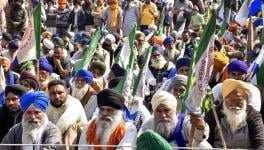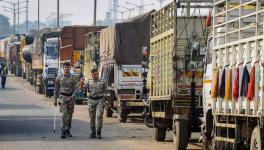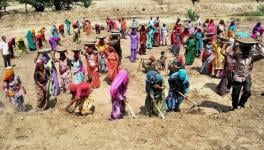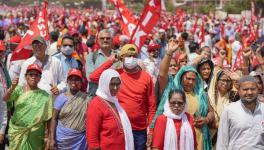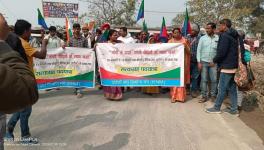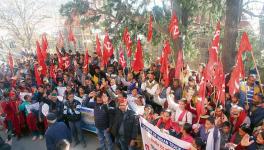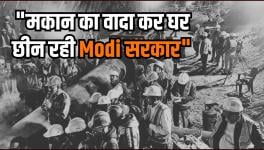Bangladesh: Left-Wing Student Groups Protest, Call for Repeal of Digital Security Law
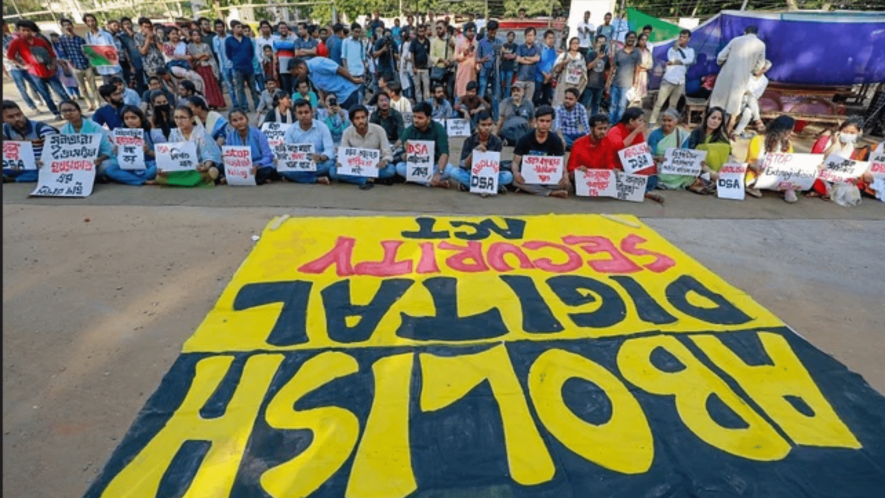
Dhaka: Prominent individuals in Bangladesh demanded the repeal of the Digital Security Act at a rally organised by Left-wing student organisations. On Friday, April 7, late afternoon, Gontantrik Chhatra Jot of Left-wing student organisations organised a gathering in front of the National Museum of Shahbagh in the nation's capital, Dhaka.
Teachers, politicians, doctors, journalists, researchers, and various student and cultural organisations participated in it. Protest songs and poems were recited between the speeches in the mass gathering.
The purpose of the Digital Security Act was to protect the ruling class, not to protect the general populace, said the protesters, adding that freedom of expression had been restricted as a result.
The citizens' constitutional rights are being violated by this statute, they said, adding that the country's criminal gangs now operate with impunity thanks to this law.
The rally demanded that the Digital Security Act should be repealed. A judicial investigation and trial should be conducted in the case of Sultana Jasmine's death in Rapid Action Batallion (RAB) custody in Naogaon district, and the start of mass signature collection to demand the withdrawal of all cases under the Digital Security Act and the release of the arrested persons should be initiated.
Economist Anu Muhammad, in his speech, said that it had been clearly stated in various clauses in the Digital Security Act that multiple ministries, members of Parliament, development projects, various institutions, and foreign countries could not be spoken against even if they carry out terrible aggression on Bangladesh or bind themselves to various harmful agreements. So, it provides security to those who are enemies of the people of Bangladesh. It is a kind of impunity law for the gangs and robbers of Bangladesh, he added.
“The Digital Security Act is an aid to coercive rule. Such laws are made to protect gangs of miscreants,” he said.
Professor Tanjimuddin Khan of Dhaka University's International Relations Department said: "We are talking about the Digital Security Act. The name is digital, but it is also backward. Behind that digital is another retrograde law, the Official Secrets Act, passed in 1923. Our protagonists, university teachers, stood up for the deregistration of a newspaper. Those who are only waiting for election nominations.”
Criticising the Digital Security Act, Khan further said that the system of losing the people's ownership over the state had been ensured through this act. He urged the citizens to stand united against this law.
Journalist Abu Saeed Khan, the advisory editor of Dainik Samakal, said: “This law is far from providing the safety of the people; it is taking away the safety of the people. Freedom of speech, freedom of the press, and even freedom of life are being eroded. Mushtaq and Jasmin gave their lives. Reporting is a democratic right. In this state of the country, those who are starving are the daily labourers who are suffering. The important question is whether those responsible for their suffering, those who have looted the banks and looted the state resources, and made people's lives miserable, are responsible today, or are those who spread the news? We do not understand what defames rulers. It is our constitutional and democratic right to criticise the mistakes, irregularities, and corruption of those running the state. The Digital Security Act took away that right.”
He also demanded the cancellation of this law. "Everyone should take to the streets to demand its cancellation." Khan said.
Bajlur Rashid Feroze, the coordinator of the Left Democratic Alliance, has demanded the complete repeal of this law. He said, "People who believe in freedom of speech, freedom of the press, and democracy opposed the Digital Security Act initially. But the government stubbornly enacted it. Criticism of government ministers and members of parliament has also been prosecuted under this law. In most cases, the plaintiffs are the ruling party's leaders and workers."
Writer and researcher Maha Mirza said: "The Digital Security Act is a strange law in which most cases are filed in the middle of the night." In this context, he mentioned the case against The Daily Prothom Alo journalist Shamsuzzaman.
"They can steal, loot, and oppress, but it cannot be said. Talking about the suffering of food is also anti-liberal! This oppressive law should not be reformed; it should be repealed immediately. All those who are being subjected to torment and torture in jail under this law should be released immediately,” Mirza said.
In December last year, the Gonantrik Chhatra Jot of the Left-wing student organisations debuted. Participating student organisations of this alliance are the Bangladesh Student Union, Samajtantrik Student Front (BASD), Samajtantrik Student Front (Marxist), Revolutionary Student Alliance, Democratic Student Council, Student Federation (National Mukti Council), Revolutionary Student-Youth Movement, and Greater Chittagong Hill Student Council.
Get the latest reports & analysis with people's perspective on Protests, movements & deep analytical videos, discussions of the current affairs in your Telegram app. Subscribe to NewsClick's Telegram channel & get Real-Time updates on stories, as they get published on our website.









